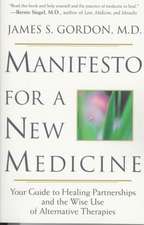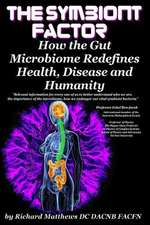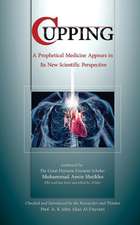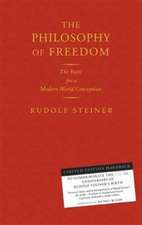Medicine: An Introductory Reader
Autor Rudolf Steiner Editat de Andrew Maendlen Limba Engleză Paperback – 29 feb 2004
Steiner's original contribution to human knowledge was based on his ability to conduct spiritual research, the investigation of metaphysical dimensions of existence. With his scientific and philosophical training, he brought a new systematic discipline to the field, allowing for conscious methods and comprehensive results. A natural seer from childhood, he cultivated his spiritual vision to a high degree, enabling him to speak with authority on previously veiled mysteries of life.
Topics include: true human nature as a basis for medical practice; the science of knowing; the mission of reverence; the four temperaments; the bridge between universal spirituality and the physical; the constellation of the supersensible bodies; the invisible human within us: the pathology underlying therapy; cancer and mistletoe, and aspects of psychiatry; case history questions: diagnosis and therapy; anthroposophic medicine in practice: and three case histories."
Preț: 83.70 lei
Preț vechi: 88.11 lei
-5% Nou
Puncte Express: 126
Preț estimativ în valută:
16.02€ • 16.51$ • 13.52£
16.02€ • 16.51$ • 13.52£
Carte disponibilă
Livrare economică 08-22 februarie
Livrare express 25-31 ianuarie pentru 19.93 lei
Preluare comenzi: 021 569.72.76
Specificații
ISBN-13: 9781855841338
ISBN-10: 1855841339
Pagini: 240
Dimensiuni: 126 x 176 x 21 mm
Greutate: 0.25 kg
Editura: Rudolf Steiner Press
Locul publicării:United Kingdom
ISBN-10: 1855841339
Pagini: 240
Dimensiuni: 126 x 176 x 21 mm
Greutate: 0.25 kg
Editura: Rudolf Steiner Press
Locul publicării:United Kingdom
Notă biografică
Rudolf Steiner (1861-1925) was born in the small village of Kraljevec, Austro-Hungarian Empire (now in Croatia), where he grew up. As a young man, he lived in Weimar and Berlin, where he became a well-published scientific, literary, and philosophical scholar, known especially for his work with Goethe's scientific writings. At the beginning of the twentieth century, he began to develop his early philosophical principles into an approach to systematic research into psychological and spiritual phenomena. Formally beginning his spiritual teaching career under the auspices of the Theosophical Society, Steiner came to use the term Anthroposophy (and spiritual science) for his philosophy, spiritual research, and findings. The influence of Steiner's multifaceted genius has led to innovative and holistic approaches in medicine, various therapies, philosophy, religious renewal, Waldorf education, education for special needs, threefold economics, biodynamic agriculture, Goethean science, architecture, and the arts of drama, speech, and eurythmy. In 1924, Rudolf Steiner founded the General Anthroposophical Society, which today has branches throughout the world. He died in Dornach, Switzerland.
















